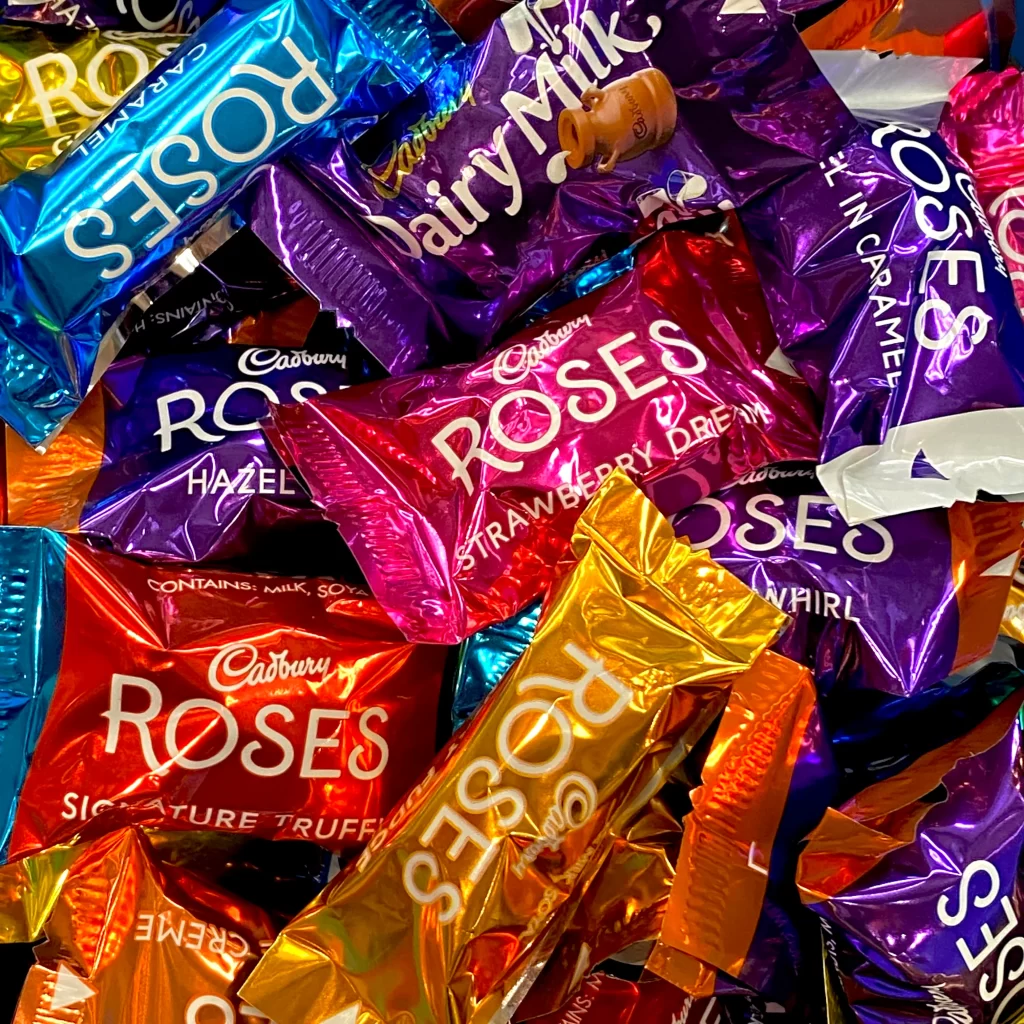(Reuters) – Quality Street maker Nestle and Cadbury owner Mondelez (NASDAQ:MDLZ) are seeing higher sales of confectionery in Britain this holiday season driven by cash-strapped shoppers seeking cheaper gifts.
Shoppers hit by inflation and higher mortgage rates are buying cheaper gifts this year, according to analysts and consumer companies. Some are snubbing toys and gadgets in favor of chocolate which, despite price rises over the past year, remains relatively inexpensive, executives say.
“Boxed chocolates have had a particularly strong start, with a year-on-year increase of 8.7% in value sales,” according to Fran McCargo, customer category manager lead for Nestle UK & Ireland, referring to the August-November period versus last year’s.
“Twistwrap chocolates have seen (sales) growth of 2.1%, to,” she said, adding that Nestle was seeing more shoppers buy chocolates as holiday gifts.
Shoppers typically spend under 10 pounds ($13) on such items, she said. Tins of Nestle’s Quality Street, trading at 5 pounds each, and Mondelez’s Cadbury selection boxes, trading at 1.50 pounds, are proving popular.
In contrast, the average selling price of a toy in Europe is about 13 pounds, according to data firm Circana, formerly known as NPD. Several toy makers told Reuters earlier this month that demand was lower this year.
“The deals with chocolates have been quite reasonable, it’s not gone any higher (in price) – gifts and toys and other stuff, yes, but chocolates no,” said Bonnie Johnson, a 42-year-old care home worker.
“It’s a cheaper gift to be able to give to quite a lot of people,” Johnson added.
Retailers like Sainsbury’s and Tesco (OTC:TSCDY) are offering discounts on Quality Street and Celebrations to customers with loyalty cards.
Other Nestle brands that typically sell well during the holiday season include KitKat Santa, which costs just over 1 pound and Milkybar Festive Friends, which costs 1.25 pounds.
MARGIN BOOST
Manufacturers are also launching more “premium” chocolate products that they can sell at higher prices to help mitigate the impact of cocoa prices hitting 46-year highs this year.
“It will help fourth-quarter earnings, as the Christmas period is the strongest for chocolate companies,” said Vontobel analyst Jean-Philippe Bertschy.
Nestle has said its underlying trading operating profit margin will be 17-17.5% this year, compared with 17.1% in 2022.
The company’s confectionary business is worth about 8.1 billion Swiss Francs ($9 billion) in annual revenue, according to its most recent annual report. That’s out of total group sales of 94.4 billion Swiss Francs last year.
The global chocolate market is worth $123.5 billion, according to Euromonitor International and the holiday season is the busiest period of the year.
Less expensive indulgences are particularly popular among younger adults, said Susan Nash, trade communications manager at Mondelēz.
Nine out of 10 British Gen Z shoppers and 83% of Millennial shoppers will “trade down” to cheaper products this holiday season, according to a survey by consultancy McKinsey. Overall, 74% of respondents said they would buy cheaper gifts.
Evie Byrne, a 29-year-old doctor, said she and her friends slashed their “Secret Santa” gift exchange budget to 10 pounds this year, from 20 pounds last year.
“I guess we are down-scaling things slightly, without realising it,” Byrne said while shopping at a Morrisons supermarket in Camberwell, southeast London.
Giving high-end chocolate tins has become part of festive cheer in Britain, with the local market for chocolate gifts worth about 1.8 billion pounds, according to data firm Circana. That has grown 7% in the past year, driven by higher prices.
The British market for toys, worth about 2 billion pounds, has declined nearly 4% this year, Circana data showed.
After Christmas, chocolate makers are expected to face tougher trading conditions next year as they attempt to pass on soaring cocoa costs. However, executives say that chocolate remains more resilient than other discretionary purchases.
“Through challenging times, consumers often review their discretionary spending. However, they are less likely to reduce their spending on confectionery gifting,” Nash said.
($1 = 0.7975 pounds)
($1 = 0.8750 Swiss francs)



